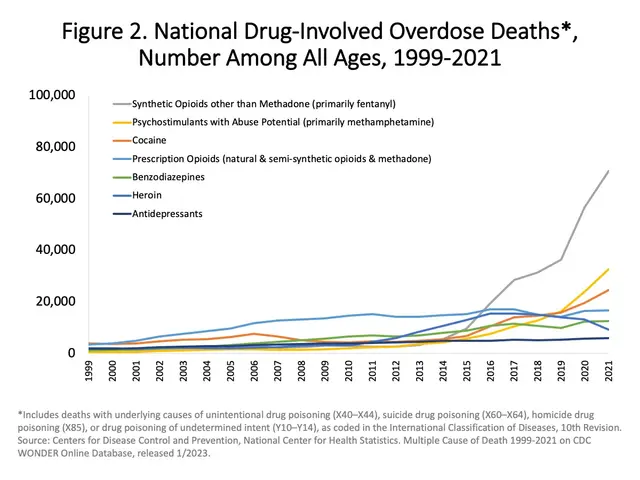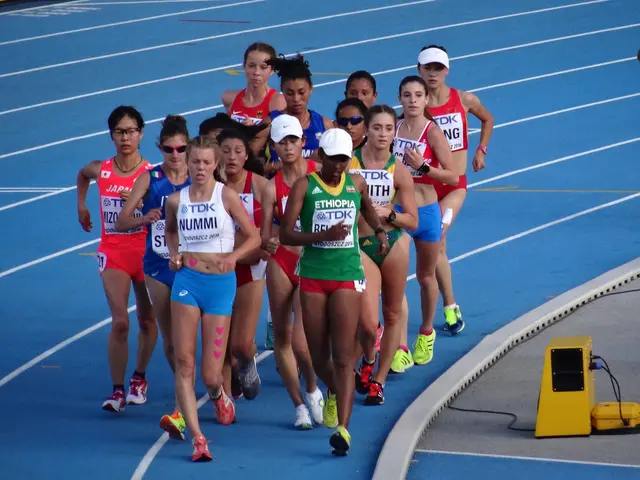Cleveland Cavaliers Contemplate Trading Wade and Okoro to Reduce Tax Liability
Cavs Pondering Trades to Lighten the Financial Load
The Cleveland Cavaliers are scratching their heads over potential trades involving Dean Wade and Isaac Okoro in a bid to ease their financial squeeze, as reported by Chris Fedor on the Wine & Gold Talk podcast. The team is eyeing to re-sign Ty Jerome and Sam Merrill, but these moves could significantly bump up their salary cap, pushing them over the luxury tax and second apron limits.
Okoro, with nearly $22M due for the next two seasons, and Wade, with a $6.6M commitment for next season before he becomes an unrestricted free agent, are in the hot seat. The Cavs are on the verge of starting the offseason $31M over the luxury tax and $14M over the second apron. The inclusion of Jerome and possibly Merrill would send these bills soaring higher.
It seems that opposing teams want more assets to take on Okoro's hefty salary, according to the report.
On the court, Okoro averaged 6.1 points and 2.4 rebounds in 55 games this season. He shot 46.4% from the field and 37.1% from three, making 22 starts and averaging 6.9 points and 2.6 rebounds per game in those matches. Wade, on the other hand, put up a somewhat better average of 5.4 points and 4.2 rebounds in 59 games. His field goal percentage was 41.3% (including 36% from three), but he struggled with free throws at 53.3%.
The Cavs, bitter about their five-game East semifinals loss to the Indiana Pacers, are now grappling with necessities to reduce costs and improve their roster.
The Second Apron's Bite
The Cavs, who just reached the upper tier of the East, are suddenly confronted with these daunting tax implications. Given their young draft stars Darius Garland and Evan Mobley, it feels hard that the team is forced to prioritize finances over player development so soon.
The podcast delved into the probable influence of team governor Dan Gilbert. The future depends on his belief in the Cavs' potential as true Eastern Conference contenders for the next season.
Trade Insights
To avoid further tax liabilities, the Cavaliers must carefully select trades that match salaries closely. They would prefer trades that either reduce their salary cap burden or bring in assets that don't increase their tax liability, addressing roster needs at the same time.
Dean Wade, with a modest salary and versatile skillset, could be an attractive trade piece for teams in need of depth without breaking the bank. Isaac Okoro, a young player with potential for growth, might be traded as part of a larger deal to acquire a well-established player or to meet specific positional needs.
[1] ESPN.com. "NBA luxury tax explained." Accessed March 24, 2022. [https://www.espn.com/nba/story/_/id/4058743/nba-luxury-tax-explained]
[2] Basketball-Reference.com. "Salary Cap FAQ." Accessed March 24, 2022. [https://www.basketball-reference.com/faq/contracts.html]
- The Cleveland Cavaliers, who recently reached the upper tier of the East, are now grappling with the daunting tax implications they face, forcing them to prioritize finances over player development, as the team governor Dan Gilbert's belief in their potential Eastern Conference contender status for the next season hangs in the balance.
- To avoid further tax liabilities, the Cavaliers must carefully select trades that match salaries closely, either reducing their salary cap burden or bringing in assets that don't increase their tax liability while addressing roster needs.
- Isaac Okoro, with nearly $22M due for the next two seasons and a young player with potential for growth, might be traded as part of a larger deal to acquire a well-established player or to meet specific positional needs, while Dean Wade, with a modest salary and versatile skillset, could be an attractive trade piece for teams in need of depth without breaking the bank.








